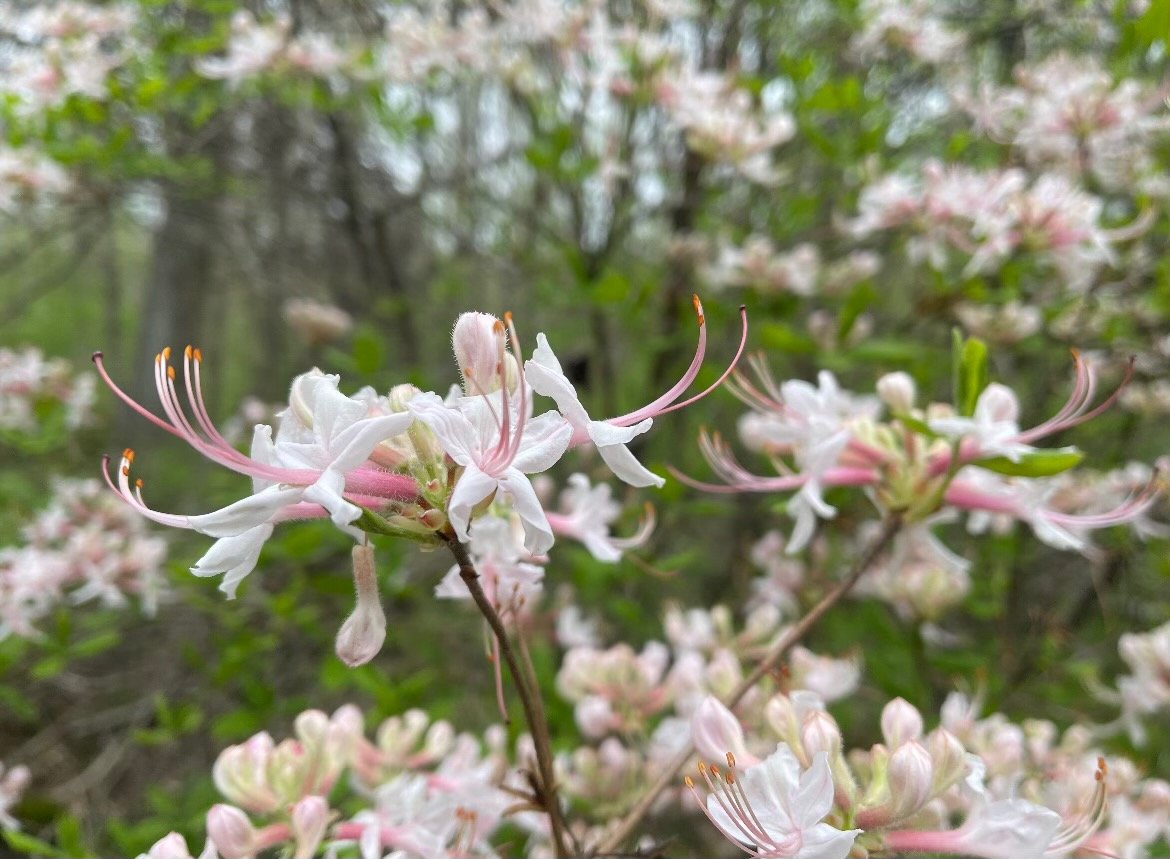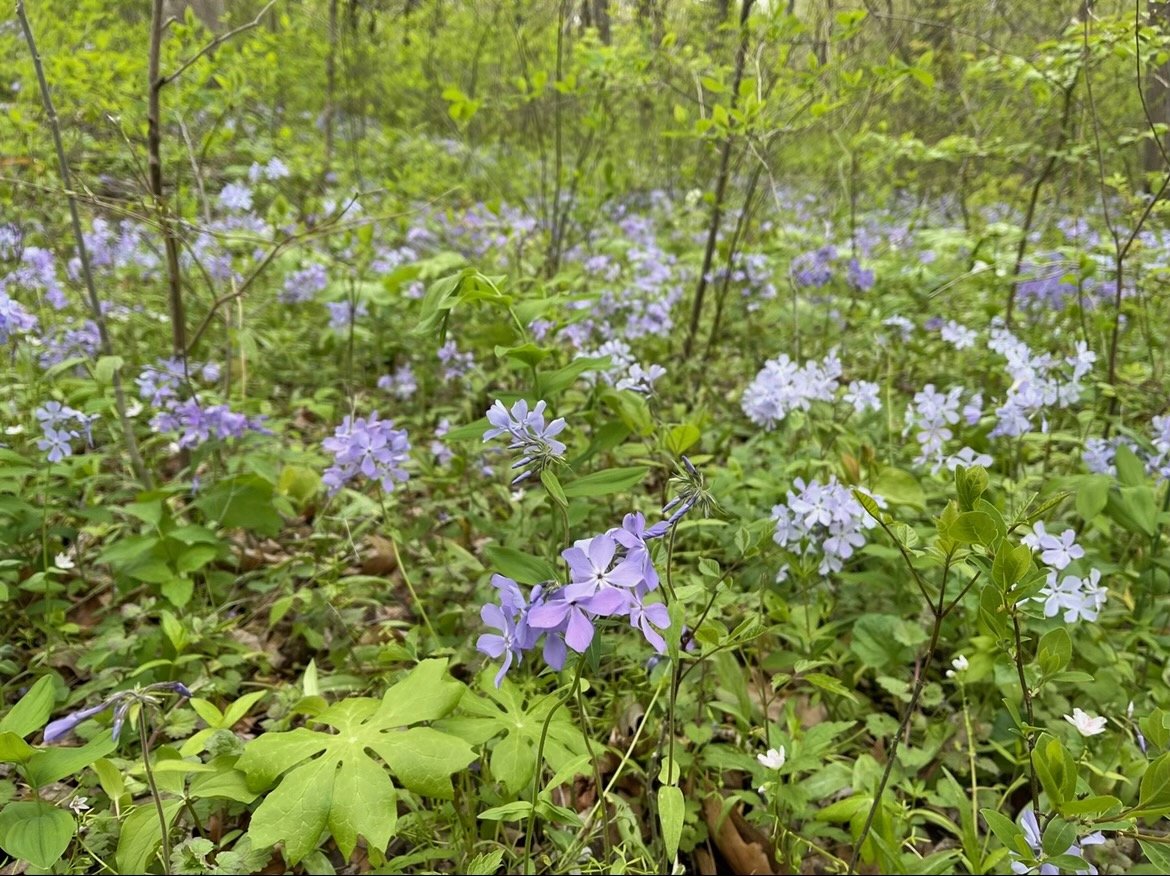Let’s Get Sustainable!
It is essential to make eco-conscious decisions when we can. Why stress out our environment when we can help it thrive? Making sustainable choices when planning your next landscape project is not only simple and exciting, but rewarding in many ways. A sustainable landscape conforms to the environment around it, exists in harmony with the local ecosystem, and requires minimal resource inputs (ex. fertilizers, pesticides, time, and water). Minimal inputs equal less money put into landscape maintenance over time. When we do decide to add an input it is important to stick with organic and natural products. Landscapes that are responsive to the environment around them produce clean air and water, increase energy efficiency, restore habitats, and reduce carbon.
With all that said, true sustainability can be achieved when we introduce native plants to our gardens. Native plants are those that were present in our region before European colonization. There are 2,100 plants native to Pennsylvania, including ferns, clubmosses, grasses, sedges, rushes, wildflowers, woody trees, shrubs, and vines. Choosing native over non-native species has many benefits. Native plants are already adapted to the local environment meaning they can handle weather extremes like drought and frost. They also serve the local ecosystem by providing food and shelter (ex. birds eat seeds and insects). Adding native plants to your flower beds will attract native pollinators such as bees, butterflies, beetles, moths, and hummingbirds. They are sustainable because they require minimal inputs (ex. water and soil amendments). Native plants help maintain native biodiversity and protect the local ecosystem. (PA Department of Conservation & Natural Resources)
Trillium, large flowered | Trillium grandiflorum - Large white flowers that turn pink when pollinated. Find it pushing through the leafy soil in late March spread across rich woodlands.
Azalea, sweet | Rhododendron arborescens - Beautiful and sweet scented white and pink flowers. Grows best in moist and acidic soil high in organic matter.
Phlox, wood | Phlox divaricata - A delicate woodland plant with pale blue flowers. Spreads throughout partially shaded areas and blooms in clusters during April and May.
More Information on Native Plants: Native Plant Profile (Bowman’s Hill Wildflower Preserve) & Pollinator Plantings (PA Department of Conservation & Natural Resources)
A depressed area on a property that collects rain water is a great place to establish a rain garden. Using native grasses and perennials, rain gardens do not cost a fortune and are a pleasing way to reduce stormwater runoff from your property. This prevents washaway and acts as a sort of damage control. These areas soak up excess water after rainfall and can filter pollutants from runoff. Another great reason to consider a rain garden is it creates an ideal habitat for pollinators and birds.
Looking for more privacy and looking to add a fence? Be eco-friendly and consider a living fence instead of the typical wood, vinyl, or metal fencing. Adding a tight hedge line will serve the same purpose as a manufactured fence. Some good native options for sunny areas would be shadbush, redbud, and viburnums. For shady spots, pagoda dogwood, pawpaw, and azalea are great choices. Learn more about Native Hedgerows. (Ecological Landscaping Alliance)
When making the choice to be more sustainable, we must address the types of inputs we use when needed. If pesticides, herbicides, fungicides, fertilizers, and mulch are needed or desired, choosing organic options are an eco-conscious choice. The best part about choosing organic is artificial and harmful matter is not being added to our soil and plants. More environmentally-friendly choices we can make when it comes to our lawns is using root mulch and leaf compost in our flower beds. When the time comes for seasonal cleanup, consider keeping leaves and debris on the property. Simply rake them into your flower beds for a cheap, effective, and eco-conscious alternative to mulch. Read more on Leaving the Leaves. The purpose of mulch is to retain moisture, regulate soil temperature, and suppress weeds. Leaf compost will do the same as mulch! Make the decision to switch to organic material when it comes to landscape maintenance.
Hardscaping is an important element that goes hand-in-hand with landscaping. Hardscaping refers to the nonliving parts of a landscape like driveways, patios, walkways, retaining walls, and much more. Minimize waste by using upcycled and repurposed material that is sitting around the yard or do a material search on Facebook Marketplace. Upcycled material eliminates waste from our environment while serving as a unique and conversational hardscape. This also applies to construction projects.
Rustic brick lattice wall using reclaimed bricks. Project completed by Cultural Landscapes in 2022.
Want to be more sustainable at home beyond just landscaping? Our team at Cultural Landscapes can go beyond offering just organic products, native plantings, and maintenance alternatives. We can help you bring sustainability to a whole new level by constructing a backyard organic vegetable garden. Starting with organic soil, compost, and fertilizer, you can grow your own organic produce right at home. We can get it all started so all you need to do is seed/plant, water and harvest.




